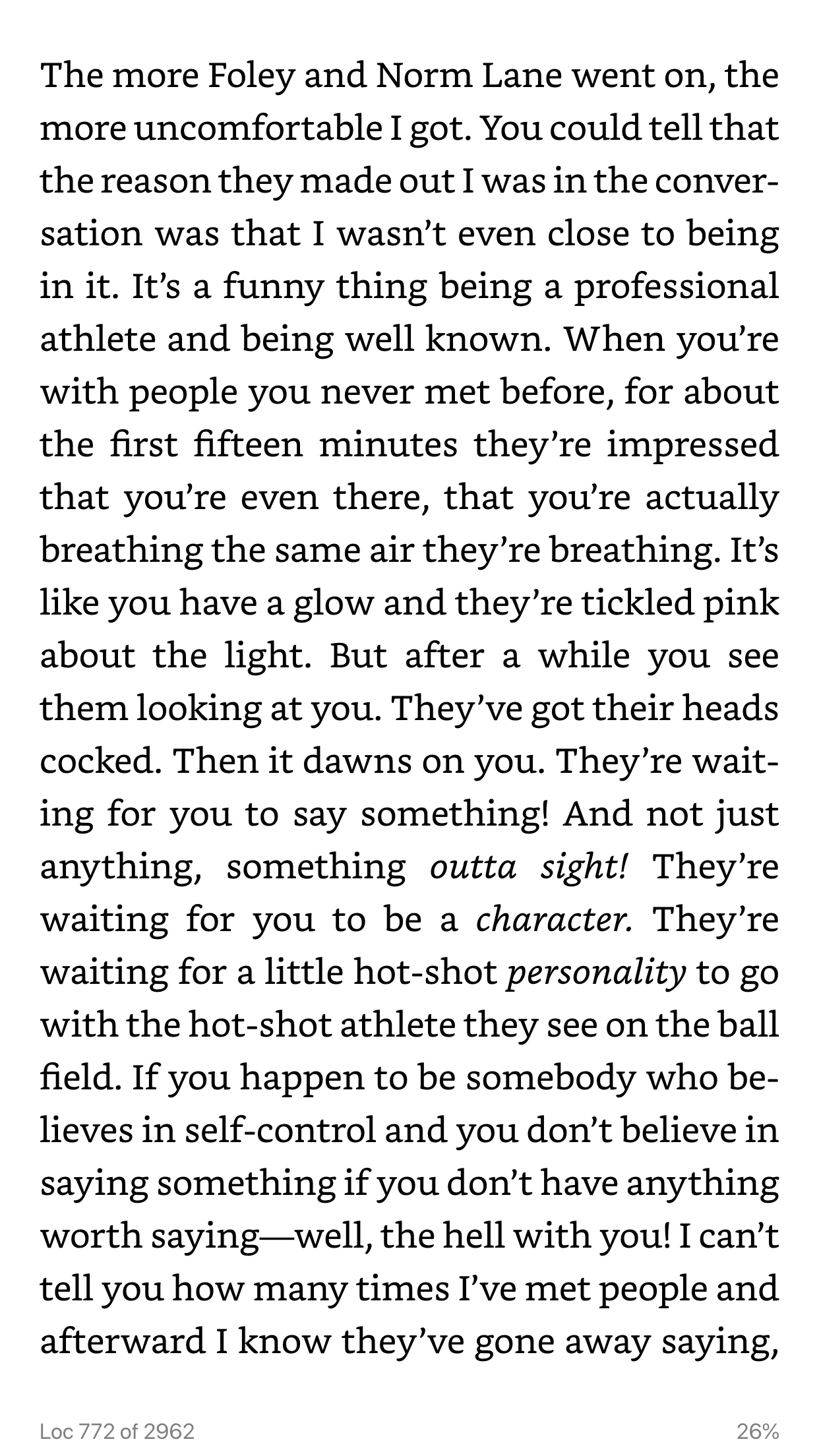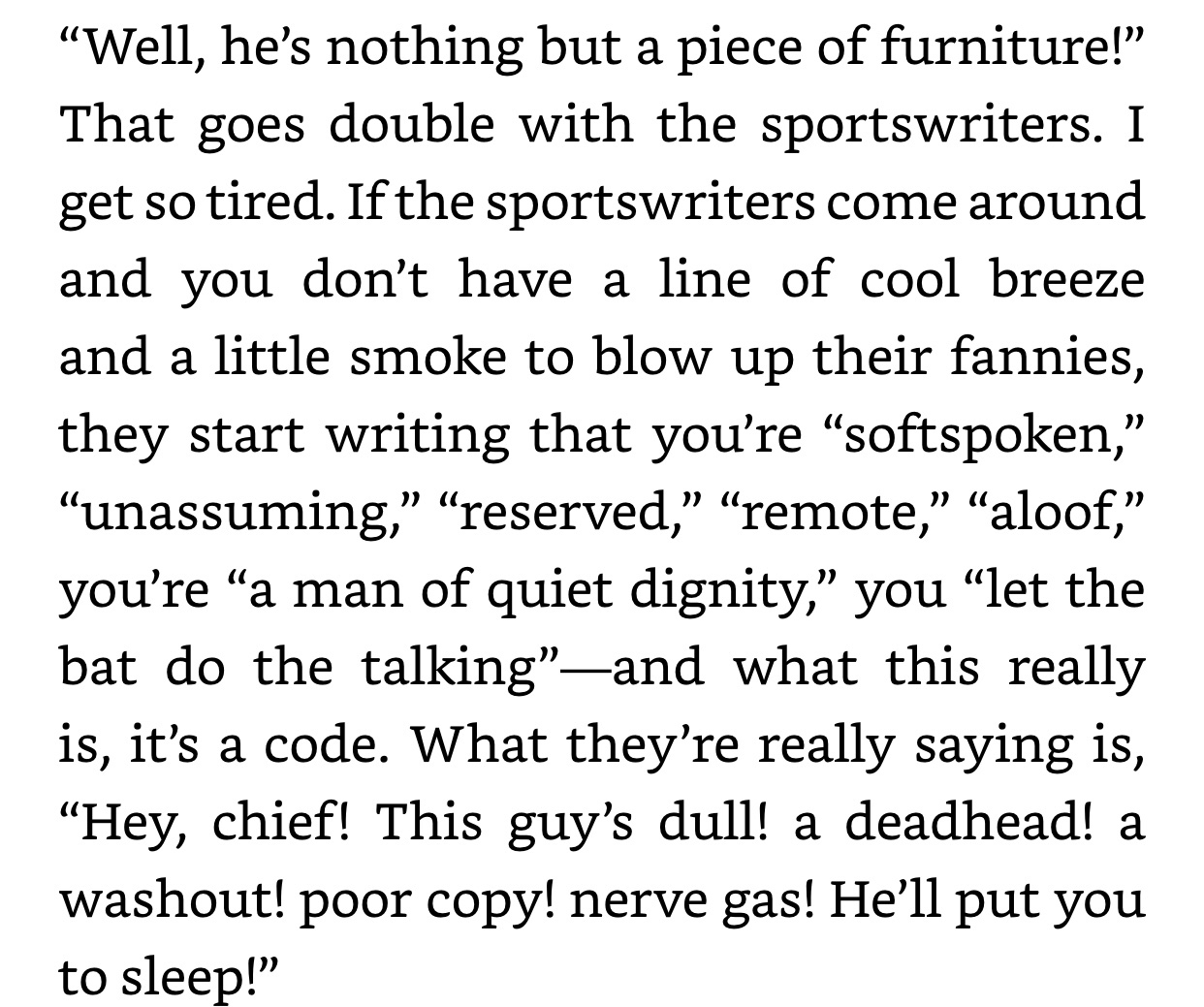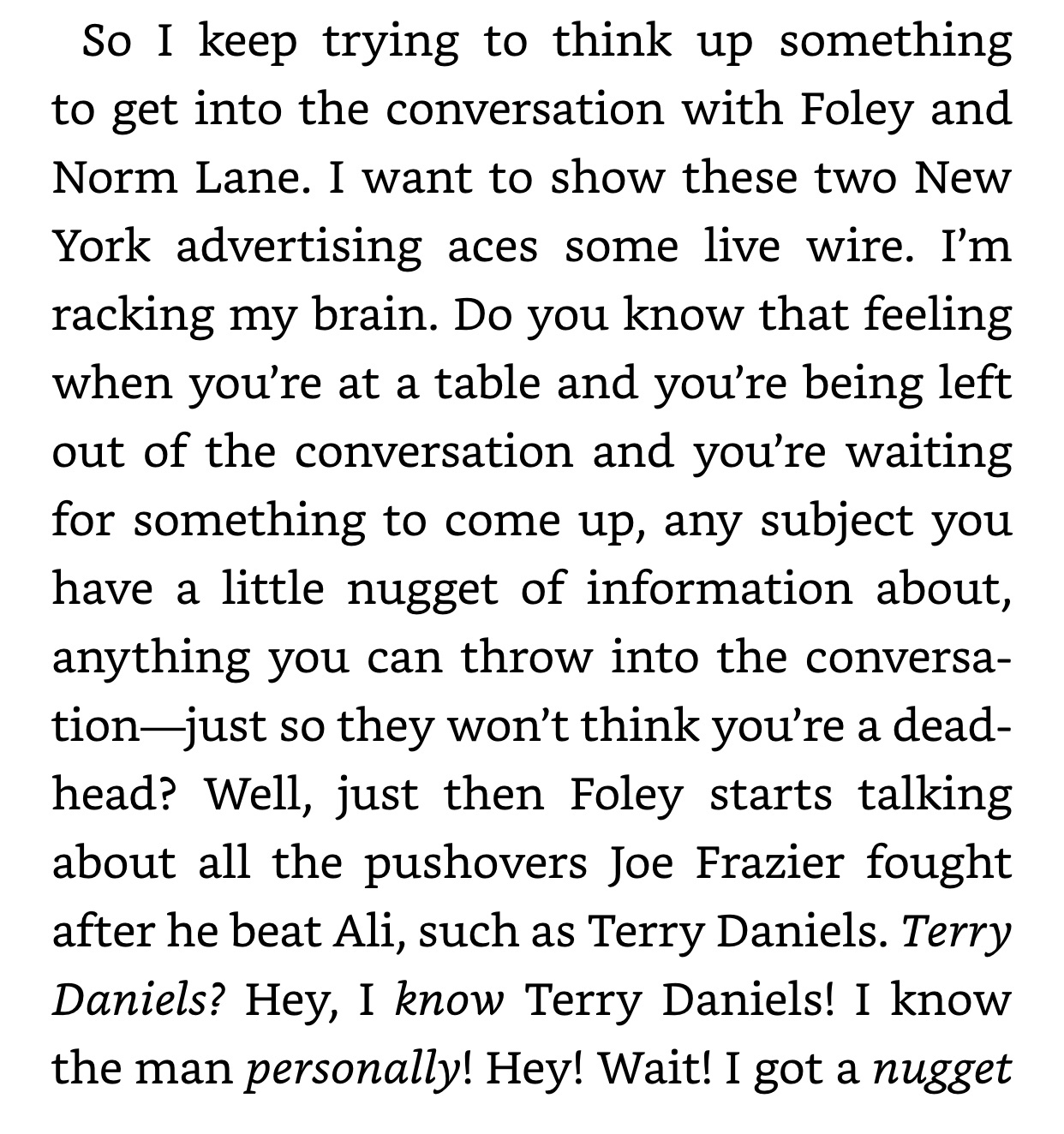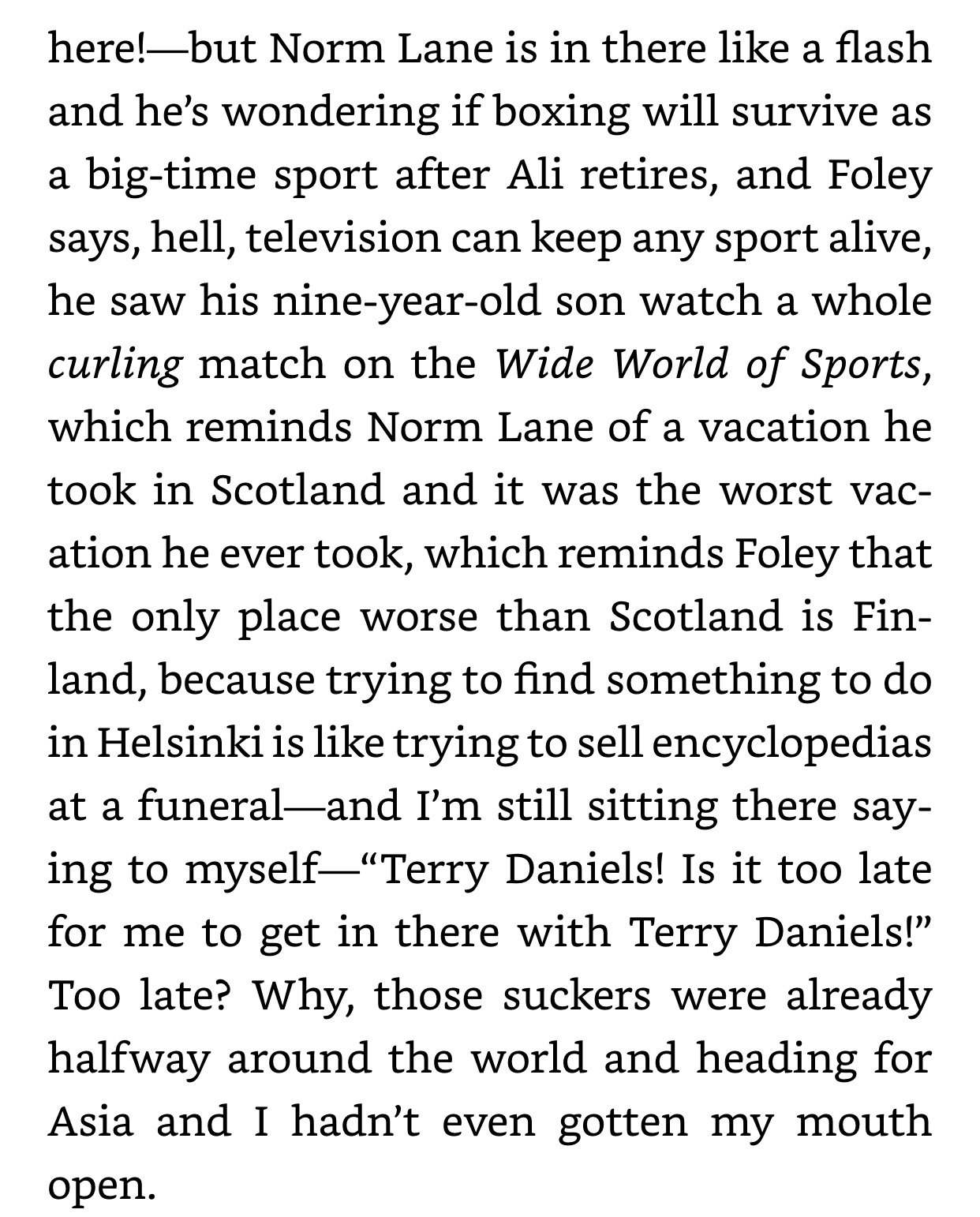Two good things happened last night after I watched Richard Dewey and Michael Lewis‘s Radical Wolfe (Kino Lorber), a decent, mildly approvable documentary portrait of the magnificent Tom Wolfe, who passed in mid-May of 2018, during that year’s Cannes Film Festival.
One, it prompted me to read the Vanity Fair article that inspired the doc — Lewis’s 2015 article about the celebrated writer (“How Tom Wolfe Became Tom Wolfe“). And two, it convinced me to order a copy of Wolfe’s “Hooking Up,” a compilation that contains Wolfe’s wicked 1965 satire of The New Yorker, called “Tiny Mummies.” (I’d bought a copy years ago but left it in West Hollywood when I moved east.)
HE to friendo about Radical Wolfe, which I saw last night: “I thought the Wolfe doc was pretty good or, you know, not bad. It covered what needed to be covered, and was properly descriptive and reverent and enthused in an acceptable sort of way.
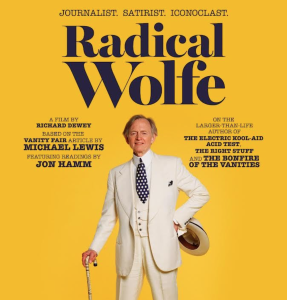
“But after decades of reading Wolfe’s stuff the doc didn’t (and perhaps couldn’t) deliver all that many bong highs. Wolfe’s writing has been giving me bong highs since the ’60s, but there were only a few (and mild ones at that) in Dewey’s film.
”Honestly? I got more enjoyment and enthusiasm…more in the way of the sheer euphoric love of delicious, sugar-rush writing…I got more of that from Owen Gleiberman’s Variety review of Radical Wolfe than from Radical Wolfe itself.
“Of all the stories and sides of Leonard Bernstein that Bradley Cooper decided to leave out of Maestro, the most infamous is surely “Radical Chic: That Party at Lenny’s” (6.8.70)”, Gleiberman notes. “Wolfe’s New York magazine cover story, described in delectable you-are-there detail, focused on a party thrown by Lenny and his wife, Felicia, at their Park Avenue apartment to raise funds for the Black Panthers.
“Several of the Panthers were there, mingling with the swells of aristocratic liberal New York, and Wolfe captured the contradictions of that evening in a tone of such scathing perception that it was as if he’d defined the concept of bourgeois political correctness, disemboweled it, and danced on its grave, all in the same moment.”
I watched Radical Wolfe with a faint hope that it might deliver several cinematic equivalents of Wolfe-ian prose highs. For a filmmaker to have managed such a feat…a kind of Adam Curtis-like re-experiencing of the Wolfe panorama…well, who knows if such a thing would be possible? But he/she would have to get really ambitious & UNCORK THE BOTTLE & REALLY GO TO TOWN in terms of creating a cinematic corollary.
Such a doc would have to be a four- or five-parter…180 or 240 minutes…and it couldn’t really be about just Wolfe’s unique literary experience, but about what he saw and felt and imagined and disapproved of and found fascinating…the whole raging sea of American life and culture from the late ‘50s, 60s, ‘70s, ‘80s and early ‘90s….a mad, churning, sweeping history of pre-boomer, boomer and GenX America….the whole tornado as witnessed and processed by a single gifted fellow but also all of us.
From Lewis’s article, a portion that focused on Lenny and Felicia’s party for the Black Panthers:
“I now admit to him that I still wonder: How the hell did he get himself invited to Leonard Bernstein’s cocktail party? Wolfe smiles and surprises me again.
“He’d gone to Harper’s magazine one day in late 1969, to pay a call on Sheila, then his girlfriend. Sheila was busy, and so he went looking around the offices, to see what he could see.
“He came upon the office of the Pulitzer Prize-winning journalist David Halberstam. Halberstam wasn’t in it. The door was open; Wolfe walked in. On top of a great pile on Halberstam’s desk he spotted an invitation—how could he not? It came from Mrs. Leonard Bernstein. He picked it up and read it…and had an idea…How could he not…These people…they had no idea…it was as if they were determined to insult the Gods…how could they not see themselves the way others would see them…all you would have to do is tell everyone in Richmond or anyplace else outside of a certain Manhattan zip code about this and the entire country would soon be collapsing in laughter…but really, when you think about it…This really is too good…He called the number to R.S.V.P. ‘This is Tom Wolfe,’ he said, ‘and I accept./ And they just take his name down, and he’s on the guest list.
“He never tells Halberstam what he’s done. He simply takes out a brand-new green steno notebook with the spirals on top and writes on the cover, in his new rococo script: Panther Night at Leonard Bernstein’s. And then he’s off, to see the world, anew.”
Mid ‘70s baseball superstar Willie Hammer vs. Manhattan mad men Foley and Lane. Lunch at The Palm. Fast talk, undercurrents of agitation, lotsa racket. From a perfectly written Tom Wolfe short story, “The Commercial”:
